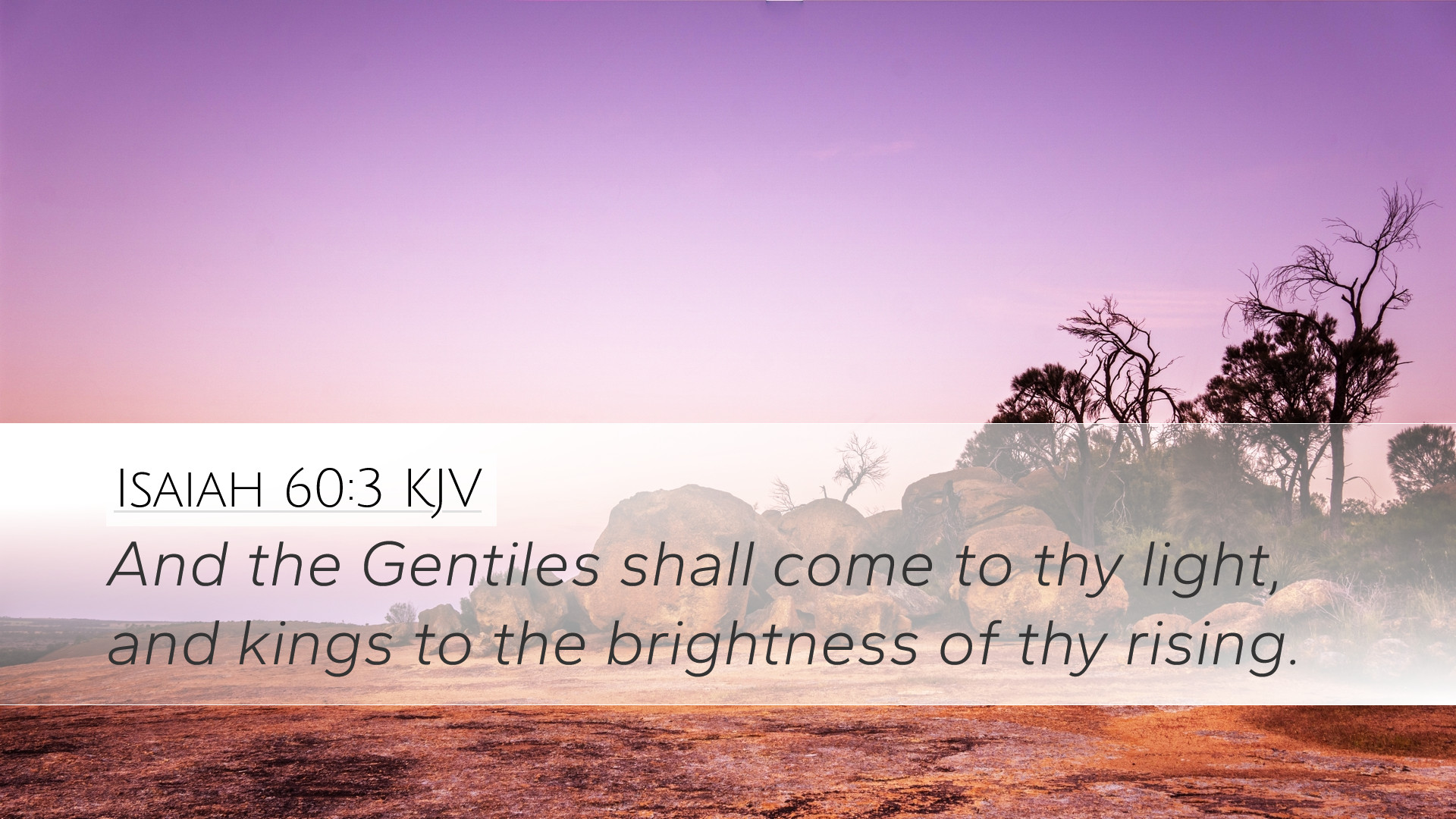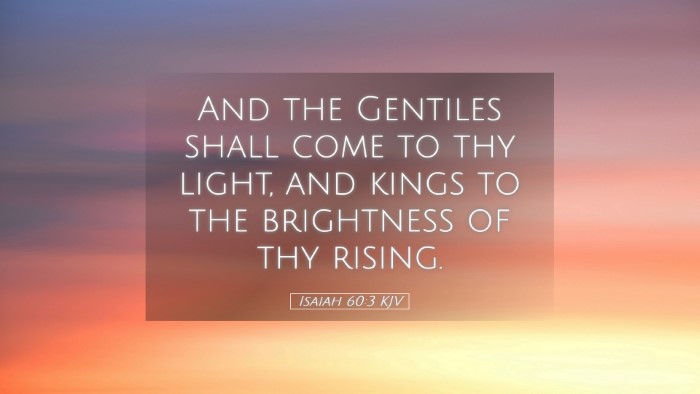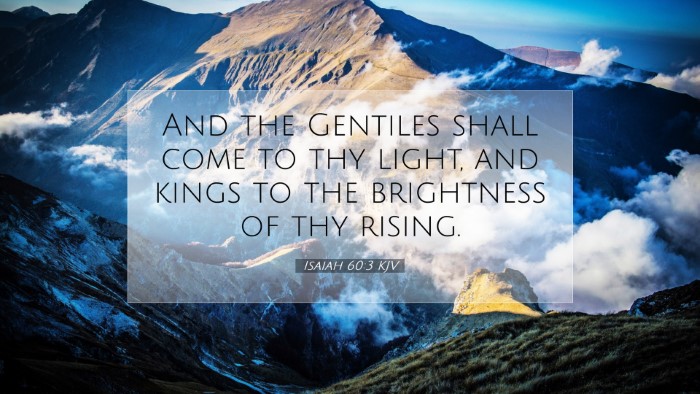Commentary on Isaiah 60:3
Isaiah 60:3 states, "And the Gentiles shall come to thy light, and kings to the brightness of thy rising." This verse captures the prophetic essence of Israel's restoration and the universal appeal of the glory of God.
It heralds the coming of a time when the nations will be drawn to Jerusalem, a symbol of God's presence and grace.
Contextual Background
The Book of Isaiah is rich in prophetic vision, especially regarding the Messianic age. In chapters 60 through 66, Isaiah prophesies about the future glory of Zion.
The context of Chapter 60 is particularly focused on the restoration of Israel after the Babylonian exile, portraying a vision of hope and light
that reignites the divine purpose for His people.
Insights from Commentators
Matthew Henry’s Commentary
Matthew Henry emphasizes the transformative power of God’s light. He sees the “light” in Isaiah 60:3 as not merely a physical illumination but a spiritual guidance.
He states that the glory of the Lord appearing to His people will attract those in darkness, highlighting a divine invitation for the Gentiles to commune with Israel.
Henry suggests that this is a symbol of God's ultimate plan for redemption, where not only the Jews but all nations will seek the light of truth.
Albert Barnes’ Notes
Albert Barnes expands the understanding of the verse by indicating that the “Gentiles” refer to non-Jewish nations. He draws attention to the future influx of these nations as a sign of God’s favor and the
realization of the prophetic vision of a unified worship of the one true God. Barnes remarks that kings coming to the brightness of Israel's rising represents both submission and reverence;
these kings bring gifts and acknowledge the supremacy of God in His holy temple. For Barnes, this underscores the evangelistic mission of the Church, mirroring the fulfillment of this prophecy in the spread of the Gospel.
Adam Clarke’s Commentary
Adam Clarke interprets this verse within a historical and eschatological framework. He highlights the phrase, “the brightness of thy rising,” as indicative of the glorious dawn of a new era for Israel.
Clarke suggests that the “light” signifies both the moral illumination and the material prosperity that God promises to His people. He notes, “When God’s glory shines upon His people, it draws others to Him.”
This aspect reflects the universal scope of redemption, emphasizing God's desire for all humanity to partake in His grace.
Clarke connects the imagery of kings with the fulfillment found in the New Testament, where rulers and learned individuals come to Jesus, recognizing Him as the light of the world.
Theological Implications
The theological implications of Isaiah 60:3 are profound. This verse not only marks a significant promise of restoration but also redefines the nature of God’s covenantal relationship with humanity.
It indicates God's intention for inclusivity, challenging the exclusive perceptions of salvation. Throughout Scripture, light symbolizes God's presence, guidance, and revelation, a theme that resonates from Genesis to Revelation.
-
Inclusivity of God’s Covenant: This passage heralds a new understanding that God's salvation is not limited to Israel but extends to all nations.
The coming of the Gentiles illustrates the widening of God’s grace, calling individuals from diverse backgrounds to respond to His light.
-
Fulfillment in Christ: Christians view this prophecy as ultimately fulfilled in Jesus Christ, whose ministry demonstrated a radical inclusion of the Gentiles.
His teachings and the Great Commission bridge the chasm between Jew and Gentile, inviting all to partake in salvation.
-
Responsibility of the Believer: There is a call to believers to reflect this light in their lives, drawing others to God.
Just as Israel was to shine for the nations, the Church today carries that mantle, embodying the love and truth of Christ in a world that remains in darkness.
Conclusion
In summary, Isaiah 60:3 encapsulates a powerful prophetic vision that transcends the historical context of Israel's restoration, pointing to the broader narrative of God’s salvific plan for all humanity.
Through light and glory, King Jesus invites everyone to come and worship, fulfilling the deep yearning for divine connection.
Pastors, theologians, and scholars are challenged through this verse to grasp the expansive nature of God's love and to actively participate in bringing the light of Christ to a world searching for hope and truth.


